阶段5 3.微服务项目【学成在线】_day03 CMS页面管理开发_16-异常处理-可预知异常处理-自定义异常类型和抛出类
在common工程创建捕获异常的类:CustomException

Runtime叫做运行异常。在代码中抛出的话 对我们的代码没有可侵入性

如果在代码上抛出
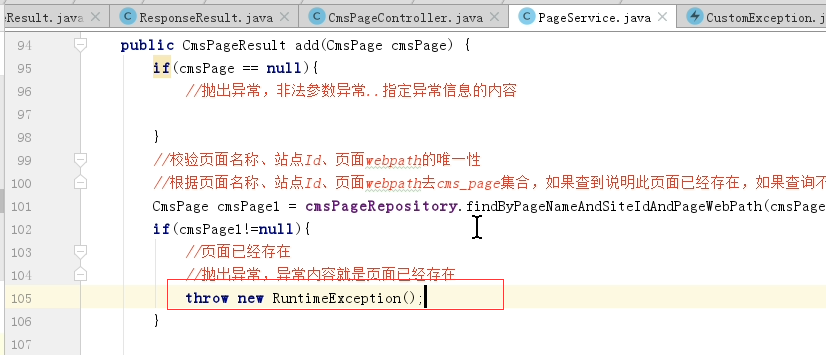
如果改成Exception 这时候就会有错误提示。
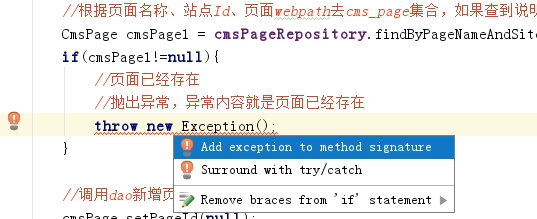
那就必须要在方法的上面抛出‘

要么不在方法上抛出,去捕获
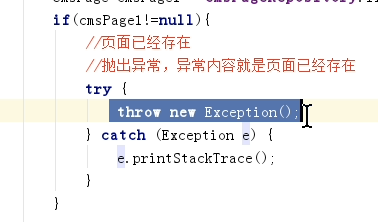
指定resultCode使用构造方法来赋值
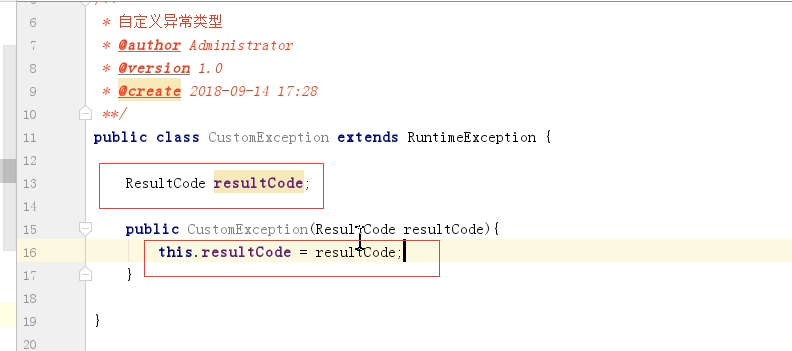
捕获到了错误代码。就需要一个get方法去取出这个错误代码。这样自定义 异常类型就定义好了。
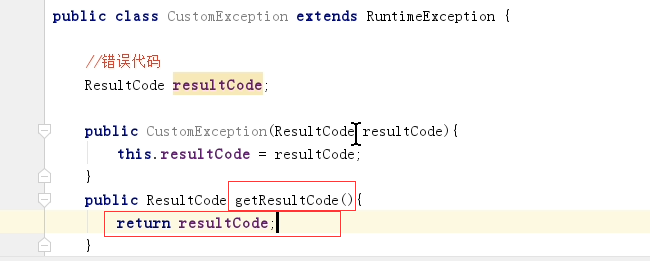
public class CustomException extends RuntimeException { ResultCode resultCode; public CustomException(ResultCode resultCode){ this.resultCode=resultCode; } public ResultCode getResultCode() { return resultCode; } }
定义好了自定义异常类,这里我们就可以在Service内 这么去抛出异常
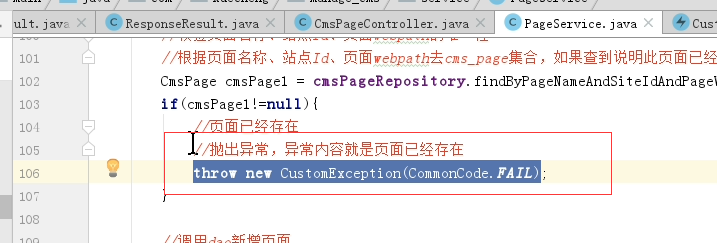
public CmsPageResult add(CmsPage cmsPage){ //校验页面名称、站点Id、页面WebPath的唯一性 CmsPage cmsPage1=cmsPageRepository.findByPageNameAndSiteIdAndPageWebPath(cmsPage.getPageName(),cmsPage.getSiteId(),cmsPage.getPageWebPath()); if(cmsPage1==null){ throw new CustomException(CommonCode.FAIL); } cmsPage.setPageId(null);//设置设置为null 让mongoDB自动去生成, cmsPageRepository.save(cmsPage); return new CmsPageResult(CommonCode.SUCCESS,cmsPage); //return new CmsPageResult(CommonCode.FAIL,null); }
再专门定义一个异常抛出类
ExceptionCast
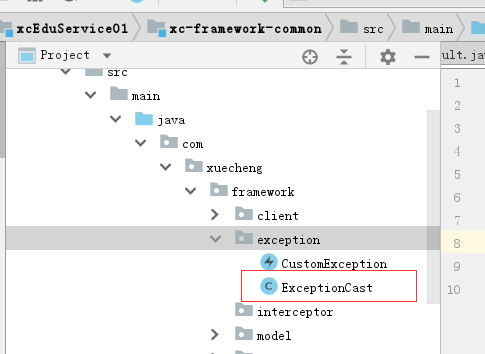
定义静态的方法,
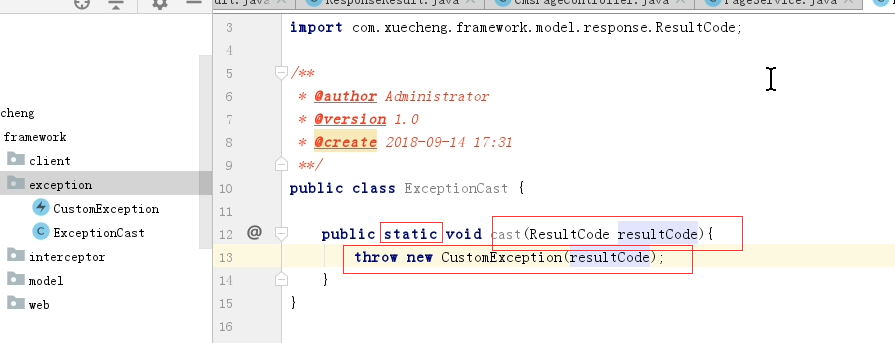
public class ExceptionCast { public static void cast(ResultCode resultCode){ throw new CustomException(resultCode); } }
这样抛出异常。这种写法 就方便很多,

if(cmsPage1==null){
//throw new CustomException(CommonCode.FAIL);
ExceptionCast.cast(CommonCode.FAIL);
}
异常捕获类
抛出异常就需要有地方去捕获、定义异常捕获类:ExceptionCatch
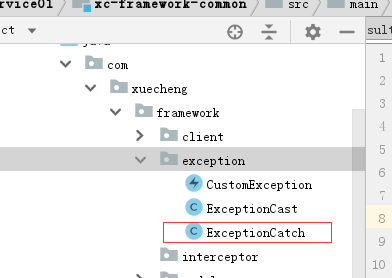
使用@ControllerAdvice。
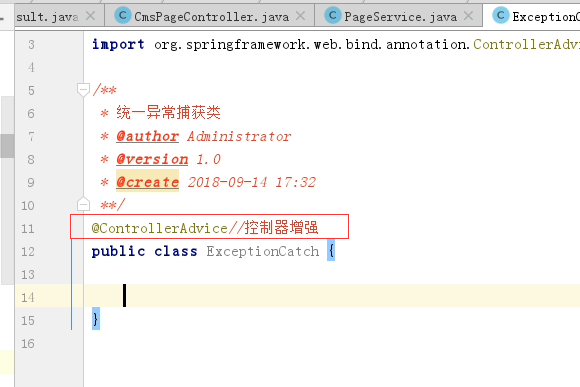
使用@ExceptionHandler捕获CustomException.class这个类的类型的异常。然后就可以获取到这个异常,并返回ReponseResult


@ControllerAdvice public class ExceptionCatch { //捕获CustomException此类异常 @ExceptionHandler(CustomException.class) public ResponseResult customException(CustomException customException){ ResultCode resultCode=customException.getResultCode(); return new ResponseResult(resultCode); } }
增加日志
注意Logger这个类是org.slf4j这个命名空间下的


完整代码
@ControllerAdvice
public class ExceptionCatch {
private static final Logger LOGGER= LoggerFactory.getLogger(ExceptionCatch.class);
//捕获CustomException此类异常
@ExceptionHandler(CustomException.class)
public ResponseResult customException(CustomException customException){
//获取异常信息,日志记录异常
LOGGER.error("catch exception:{}",customException.getMessage());
ResultCode resultCode=customException.getResultCode();
return new ResponseResult(resultCode);
}
}
public class CustomException extends RuntimeException {
ResultCode resultCode;
public CustomException(ResultCode resultCode){
this.resultCode=resultCode;
}
public ResultCode getResultCode() {
return resultCode;
}
}

 浙公网安备 33010602011771号
浙公网安备 33010602011771号